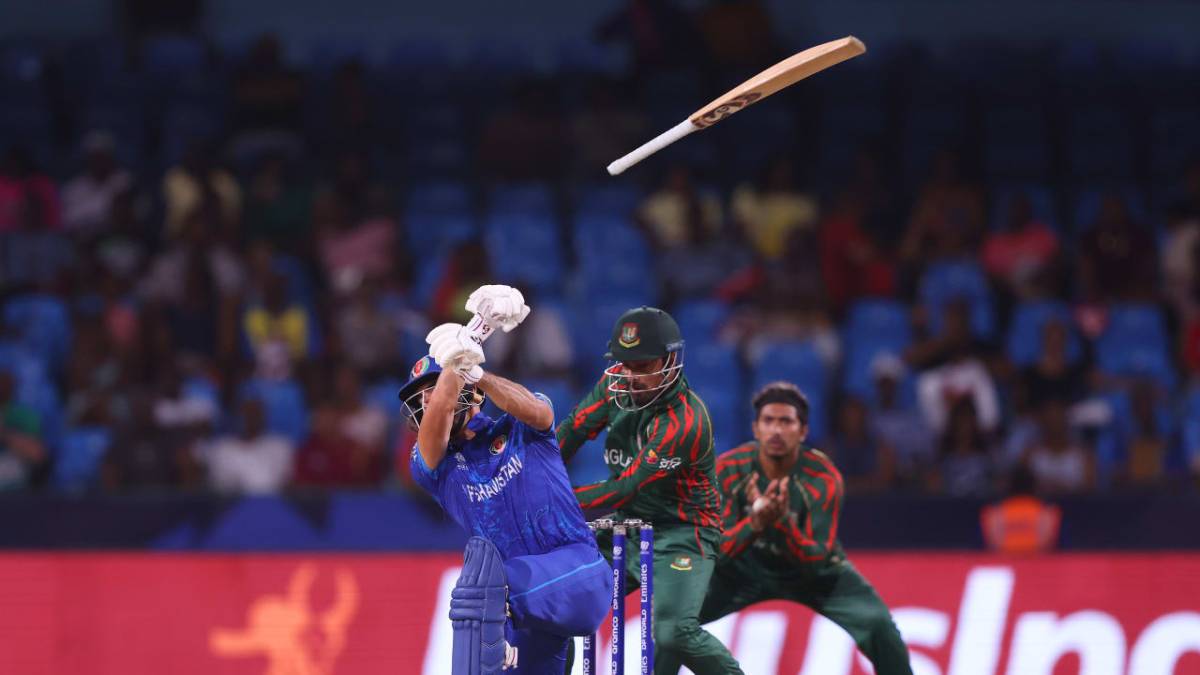How did a team with no cricketing history become a force?
Afghanistan upsets Australia to reach T20 World Cup semifinals

The roar of the crowd echoes through the Kabul streets. A nation erupts in celebration as their beloved Afghan cricket team scores a historic victory in the T20 Worldcup by entering into the semifinal after defeating Bangladesh.
Afghanistan's victory has ended Australia's campaign by pinching second spot in Group 1 of the Super Eights. They join India, England, and South Africa as the tournament's four remaining World Cup contenders.
This wasn't always the scene. Just two decades ago, Afghanistan was a country ravaged by war, with cricket a distant dream for many. So, how did this nation, with no cricketing history to speak of, become a force to be reckoned with on the international stage?

Image Credit: India Today
From refugee camps to world-class cricket
The seeds of Afghan cricket's success were sown in the most unexpected of places - refugee camps in Pakistan. During the Soviet-Afghan War, many Afghans fled to neighboring Pakistan, where they were exposed to the sport for the first time. The passion for cricket quickly ignited, providing a much-needed escape from the harsh realities of war.
Upon returning home after the war's end, these Afghans brought their newfound love for the game back with them. The first Afghan national team was formed in 2001, just months after the fall of the Taliban regime. It was a ragtag group, playing with borrowed equipment on makeshift pitches. But their enthusiasm was unmatched.
The newly formed Afghanistan Cricket Board (ACB) faced a daunting task. They lacked infrastructure, resources, and experienced players.

Image Credit: ICC
UAE's role
This is where Dubai stepped in. The Dubai Cricket Council (DCC) offered invaluable support, providing coaching expertise, training facilities, and opportunities to participate in tournaments. Dubai became a second home for the Afghan team, a place where they could hone their skills and gain valuable experience playing against international teams.
How Pakistan assisted
Pakistan's role in Afghan cricket's development cannot be understated either. Pakistani coaches like Kabir Khan and Ijaz Ahmed played a pivotal role in shaping the early Afghan team. These coaches not only shared their cricketing knowledge but also instilled a fighting spirit and a never-give-up attitude in the young Afghan players.

Image Credit: ICC
Early challenges
The early days were challenging. Afghanistan lost most of their initial matches. But they were a team on a learning curve, constantly improving with each game.
Their hard work and dedication started to pay off. In 2009, they achieved ODI status, and by 2017, they had earned their Test Match stripes.
Afghanistan cricket team
Today, Afghanistan boasts world-class players like Rashid Khan, Mohammad Nabi, and Mujeeb Ur Rahman. Their aggressive playing style, particularly their mastery of spin bowling, has struck fear into the hearts of even the most established cricketing nations.

Image Credit: ICC
A tale of determination and self-believe
From the dusty refugee camps of Pakistan to the international spotlight, Afghanistan's cricketing journey is an inspiration to aspiring cricketers around the world. It's a story that proves that even with limited resources and a tumultuous past, a nation's unwavering spirit can propel them to cricketing glory.